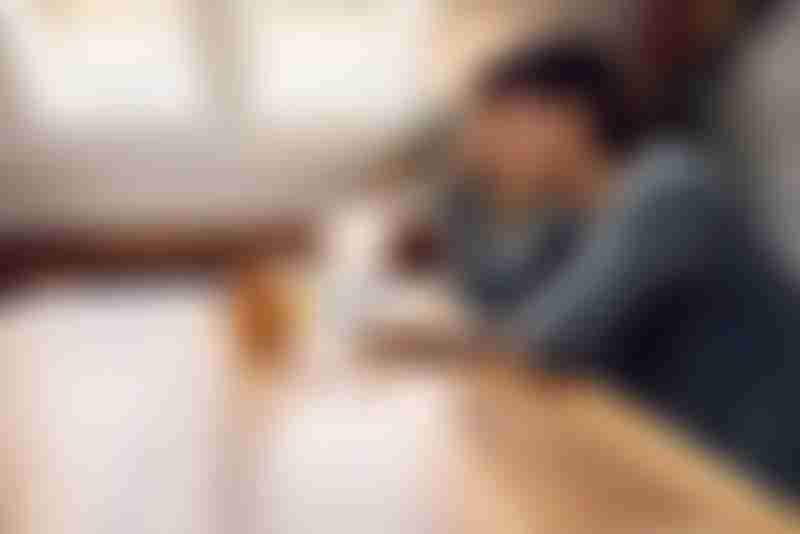Coping with Breast Cancer Treatment and Their Side Effects

Source: Shutterstock
If you have been recently diagnosed with breast cancer or are currently going through treatment for breast cancer, you may be experiencing a range of emotions. This is completely normal, and many share your emotional experience. It is one thing to deal with the blow of a breast cancer diagnosis, but it is another to think about all the following treatments and the kind of life awaiting you after that. The path ahead is long and arduous, especially the prospect of treatment and its possible side effects. Rely on your support system and doctors for guidance. Most importantly, try to find the strength and resilience within you to overcome this period of adversity.
Fear of treatment

Source: Shutterstock
The thought of treatment for your breast cancer may seem very intimidating and overwhelming. Will it be painful? What will happen during and after the treatment? What kind of side effects will I experience? How will it affect my life and my family? What if the treatment does not work? These are common questions that you may be asking yourself. Having these fears and anxieties at this stage is normal. After all, the fight against breast cancer may be long, and not everybody may be prepared for it.
Knowing what treatment options are available for you, understanding what they are, how they will be carried out, and their potential side effects may help to prepare you, reduce anxiety and manage your fears mentally. Not all breast cancer patients go through the same treatment plan. Here are some things you may do to overcome the fear of treatment:
- Research beforehand to get an idea of what to expect. Different treatments may have varying durations, some taking a few hours while others taking several months. Being mentally prepared can make a difference.
- Create a list of questions to ask your doctor.
- Clarify any doubts with your doctor.
- Express your fears and concerns to your doctor so that they can address them.
- Share your feelings with family, close friends, or a support group. Those who care for you are always willing to help you through tough times.
- Bring a loved one to your doctor’s appointment to provide emotional support and help you remember important details.
The thought of treatment may seem scary, but do know that you are taking a step toward recovery and a healthier life.
Common side effects and how to cope with them
Cancer treatments, including surgery, chemotherapy, radiation therapy, and hormone therapy, can cause some side effects. Please refer to their articles for specific information on each treatment's side effects. Side effects can be short-term and end soon after treatment, long-term and persist after treatment, or even occur months or years after treatment. Most of the side effects cannot be avoided, but many can be managed or reduced with lifestyle changes, medication, physiotherapy, and medical intervention. So, don't worry, you can get help with most of the side effects.
The most frequently encountered side effects are short-term and can be addressed more easily.
Fatigue

Source: Shutterstock
Cancer treatments like chemotherapy and radiation therapy can be tough on your body, as they target not only cancer cells but also the healthy ones. This can result in fatigue as your body works to replenish healthy cells. While it may be difficult, it is essential to take the time to rest during treatment, even if it means putting other responsibilities on hold and seeking help from others. Keep in mind that these feelings of guilt and dependence are only temporary, and you're taking important steps toward healing and recovery.
Swelling of the breast or arm

Swollen arm (at top) in an 89 year old female patient caused by lymphedema after breast removal (mastectomy) for breast cancer. Source: Science Photo Library
Many breast cancer treatments can cause swelling in the breast or arm, depending on the type of treatment. While it may seem like a cause for concern, swelling can usually be reduced or managed through exercise, compression garments, or a type of massage called manual lymphatic drainage. In fact, in most cases, swelling will naturally settle and go away on its own, but do update your healthcare team on any side effects you experience and let them assess the severity of each side effect to further advise you on any action that needs to be taken.
Pain after surgery
While pain for most people is only temporary, some experience pain in their breasts, arms, or armpits long after the surgery. This is normally due to nerve damage during the surgery or when the scar tissue forms. Common methods to manage pain include pain relief, exercise, physiotherapy, massage, etc. It has been shown that non-physical practices such as meditation and cognitive behavioral therapy can help you find new ways to perceive pain and find relief. Simple and practical changes such as wearing loose-fitting clothing or well-fitted bras may also reduce pain and discomfort. It is essential to notify your healthcare team of the types of pain you are feeling and the extent of it so that they can assess it and help you accordingly.
Loss of appetite

Source: Shutterstock
Many treatments may cause nausea, diarrhea, constipation, mouth sores, and a change in taste, which can all lead to a loss of appetite. Eating very small meals throughout the day and drinking lots of water may help with these side effects. Additionally, increasing fiber intake may also help with constipation. In case of mouth sensitivity, you may be given an antiseptic mouthwash to reduce the risk of mouth sores. If these methods do not work, discuss them with your doctor and explore other options.
Coping with cancer treatment emotionally and mentally
Dealing with breast cancer treatment can feel like a never-ending marathon, with countless treatments and scans. Nonetheless, keep in mind that each session or dose of medication brings you closer to the end of your treatment. A solid support system can make all the difference during this trying time. Whether it be the unwavering love and care of your family and friends, the guidance and support of a counselor, the camaraderie and empathy of an online support group, or the assistance of a helpline, numerous individuals and organizations are available to provide their help. Do not navigate through this predicament alone. Take it one day at a time, and never forget that a ray of hope awaits you at the end of this road. Prioritize self-care, maintain a positive outlook, and seek help whenever necessary.